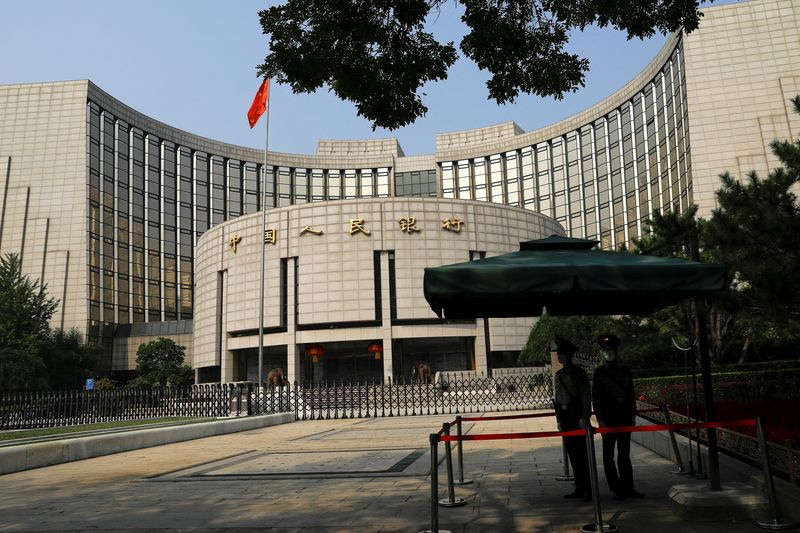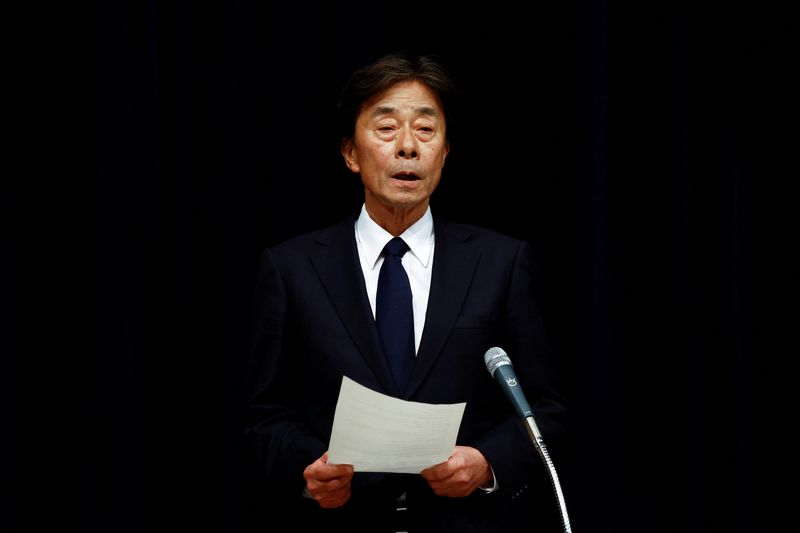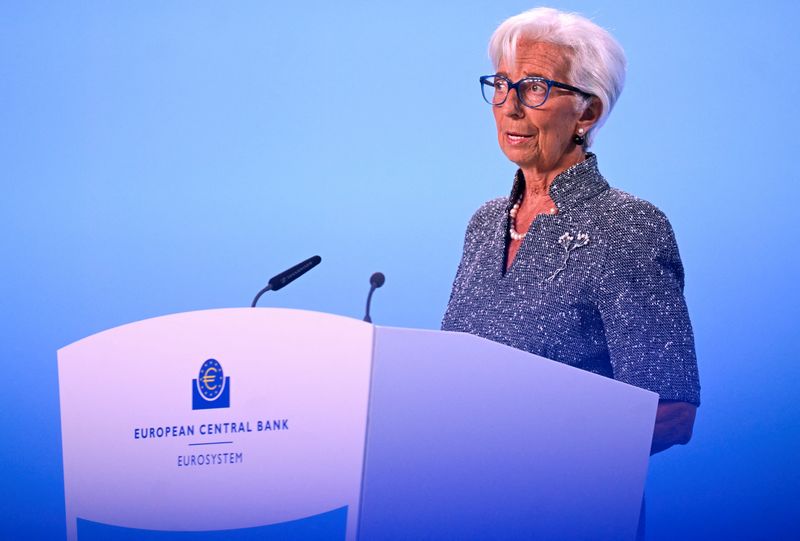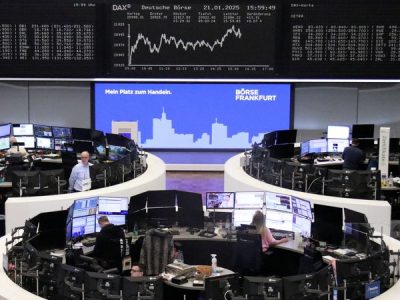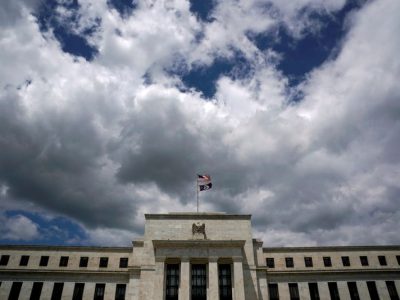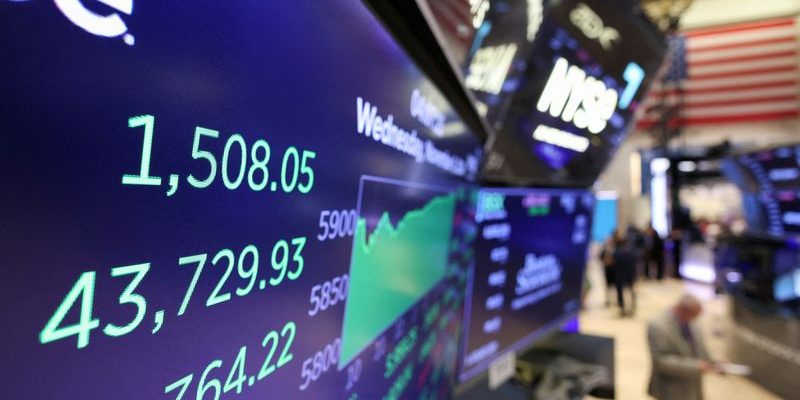
LONDON (Reuters) – World markets continue to assess what a Donald Trump administration will bring, as attention turns to an escalation of the war in Ukraine.
The U.S. Thanksgiving holiday will usher in a key shopping period, while inflation is in focus in Japan and Europe.
Here’s a look at the week ahead from Rae Wee in Singapore, Lewis (JO:LEWJ) Krauskopf in New York, and Naomi Rovnick, Amanda Cooper and Yoruk Bahceli in London.
1/ BINGO ANYONE?
“Trump trades” will likely continue dominating market action.
Anyone with “buy crypto and the dollar, sell anything foreign, or green” on their markets’ bingo card would still be in the money, even if momentum has softened. Bitcoin is within a hair’s breadth of $100,000, up around 50% from early October, when online betting markets pointed to a Trump election win. The dollar index is up 3.6%.
Clean energy, a Trump bug-bear, is the biggest loser, with iShares’ clean energy exchange-traded fund down almost 14%. Mexico’s peso has shed just over 4% and European equities, around 3%. With a few more Trump cabinet appointees to be announced and a little over 60 days before his inauguration, there’s still room for surprises.
Resistance to Trump trades could grow, from a realisation that stocks are expensive or from geopolitics providing a reality check on the risk assets’ rally.
2/ FOREIGN AFFAIRS
Group of Seven foreign ministers meet next week as Russia’s Ukraine invasion just passed the grim milestone of 1,000 days of war and risks a major escalation.
Russia fired a hypersonic intermediate-range ballistic missile at the Ukrainian city of Dnipro on Thursday after the U.S. and UK allowed Kyiv to strike Russia with advanced Western weapons, a further escalation of the 33-month-old war.
Safe-haven bonds have rallied in a sign of investor unease. But markets will struggle to assess the significance of fresh G7 communiques until Trump’s policy on Ukraine becomes clearer.
Trump regularly clashed with G7 allies during his first presidency and has pledged to end the war.
Investors expect Europe to pay more of Ukraine’s support bill and raise overall defence spending, which may require big changes like lifting Germany’s constitutional spending cap.
3/ BARGAIN HUNT
Thanksgiving week in the United States ends with Black Friday, which traditionally marks the start of the holiday shopping period. Investors are watching the extent to which inflation will weigh on buying habits, with consumer spending accounting for more than two-thirds of U.S. economic activity. In one worrisome sign, Target (NYSE:TGT) shares tumbled this week after the retailer forecast holiday-quarter comparable sales and profit below estimates. Inflation trends are also in focus with Wednesday’s release of the Personal Consumption Expenditures Price index, the Federal Reserve’s preferred gauge. The PCE index, which is expected to have climbed 0.2% for October, is one main data point before the Fed’s Dec. 17-18 meeting. Markets indicate investors are split over whether the Fed will hold rates steady or deliver another quarter-point cut, which would be another boost to consumers.
4/ RUSH HOUR
It’s a jam-packed Friday for the euro zone, kicking off with inflation data watched closely by traders betting on the European Central Bank outlook.
Inflation rebounded to 2% in October after falling below target a month. Pay growth meanwhile accelerated in Q3, though policymakers may look through that.
Traders see just under a 20% chance of a 50 bps ECB rate cut in December, versus 40% a month earlier.
Next (LON:NXT) up, S&P reviews France’s credit rating – Fitch and Moody downgraded their outlooks to negative recently.
Uncertainty remains high as Michel Barnier’s government seeks to pass a belt-tightening budget, with far-right leader Marine Le Pen threatening to topple the fragile ruling coalition.
And Ireland holds an election, where ambitious spending plans banking on a sustained boom in multinational corporate tax revenues could be threatened by Trump’s presidency.
5/ HIKE OR NO HIKE?
Also on Friday, Tokyo inflation numbers will be watched by investors and Bank of Japan policymakers gauging whether interest rates should rise in December.
While officials have kept markets guessing on when they will hike next, a sliding yen could spark a hawkish BOJ shift sooner rather than later.
The market odds of a 25-bps December hike are now up to about 54% from negligible levels a month ago.
The yen, down more than 7% since the end of September to trade around 155 per dollar, has entered territory that previously triggered intervention by Japan to shore up the currency.
Officials are back to jawboning about yen weakness, while politics complicates matters.
The Liberal Democratic Party is looking to regain public support after a poor showing in recent election, and a rate hike is unlikely to sit well with voters.
(Graphics by Pasit Kongkunakornkul, Vineet Sachdev, Prinz Magtulis and Sumanta Sen; Compiled by Dhara Ranasinghe; Editing by Kate Mayberry)


